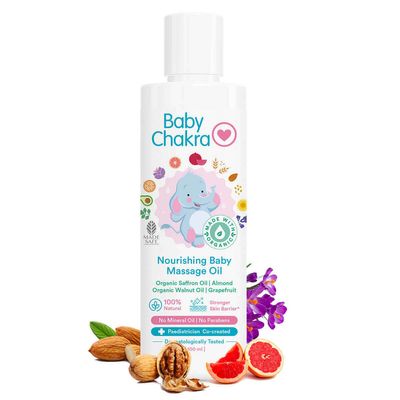
World Thalassemia Day 2023: Early Detection Of Beta Thalassemia In Children
8 May 2023 | 4 min Read
Manisha Pradhan
Author | 1053 Articles
Beta thalassemia, a genetic blood disorder, affects millions of people worldwide. Early detection of this condition in children is crucial to ensure timely medical intervention and improve patients’ quality of life.
Read on to know the importance of prenatal and newborn screening for beta-thalassemia, the benefits of early diagnosis, and the various screening methods available.
What Is Beta Thalassemia?
Beta thalassemia, also known as thalassemia beta, is an inherited blood disorder characterised by reduced or absent production of haemoglobin, the protein that carries oxygen in the red blood cells.
Haemoglobin is composed of alpha and beta-globin chains, and beta thalassemia results from mutations in the HBB gene responsible for producing the beta-globin chains. This leads to anaemia, fatigue, and other severe health complications.
The Importance of Early Detection

Early detection of beta thalassemia is vital for several reasons:
Treatment initiation
Starting treatment early can help manage the symptoms of beta-thalassemia and reduce the risk of complications. Treatment options include regular blood transfusions, iron chelation therapy, and, in severe cases, stem cell transplantation.
Family planning
Identifying carriers of beta thalassemia allows couples to make informed decisions about family planning and pursue options like preimplantation genetic diagnosis (PGD) to prevent the transmission of the disorder to future generations.
Education and support
Early diagnosis provides families with the opportunity to learn about beta thalassemia, connect with support groups, and access resources that can help them navigate the challenges associated with the condition.
Prenatal Screening For Beta Thalassemia
Prenatal screening is an essential tool for early detection of beta-thalassemia in unborn children. There are two primary prenatal screening methods:
Chorionic Villus Sampling (CVS): CVS is performed between 10 and 13 weeks of pregnancy. It involves taking a small sample of the placenta (chorionic villi) and testing it for the presence of beta-thalassemia mutations.
Amniocentesis: This test is conducted between 15 and 20 weeks of pregnancy. It involves extracting a small amount of amniotic fluid surrounding the fetus and analyzing it for beta-thalassemia mutations.
Both procedures carry a small risk of miscarriage, so thorough genetic counselling is essential before deciding to undergo prenatal screening.
Newborn Screening for Beta Thalassemia

Newborn screening is another crucial method for detecting beta-thalassemia in infants. It involves collecting a small blood sample from the baby’s heel within the first few days of life. This sample is then tested for various genetic and metabolic conditions, including beta-thalassemia. In many countries, newborn screening for beta-thalassemia is mandatory, allowing for early diagnosis and prompt treatment initiation.
Benefits Of Prenatal And Newborn Screening
Prenatal and newborn screening for beta-thalassemia offers several benefits:
Improved prognosis: Early diagnosis and treatment can significantly improve the prognosis for children with beta-thalassemia, reducing the risk of complications and improving their overall quality of life.
Informed decision-making: Prenatal screening allows couples to make informed decisions about their pregnancy and the future of their families, including whether to continue with the pregnancy or consider alternative options, such as adoption or in-vitro fertilization with PGD.
Early intervention and support: Newborn screening ensures that children with beta-thalassemia receive prompt medical intervention and support, which can help manage their symptoms and reduce the impact of the condition on their daily lives.
Financial planning: Early detection of beta-thalassemia allows families to plan for the financial implications of the condition, which may include long-term medical care, specialized education, and support services.
Public health benefits: Prenatal and newborn screening programs can help reduce the prevalence of beta-thalassemia in the population, leading to overall improved public health outcomes.
Early detection of beta-thalassemia through prenatal and newborn screening is crucial for ensuring timely medical intervention, informed family planning, and access to essential support services. By identifying carriers and affected individuals early in life, families can better prepare for the challenges associated with thalassemia beta and improve the quality of life for those living with the condition.
Recommmed products for kids
Also Read:
The Power Of Touch: 5 Reasons Why Newborns Need Your Loving Caress
Is It Normal For Newborns To Grunt Or Is It A Sign Of Something Serious?
Cover image source: freepik
A


Related Topics for you
Suggestions offered by doctors on BabyChakra are of advisory nature i.e., for educational and informational purposes only. Content posted on, created for, or compiled by BabyChakra is not intended or designed to replace your doctor's independent judgment about any symptom, condition, or the appropriateness or risks of a procedure or treatment for a given person.



